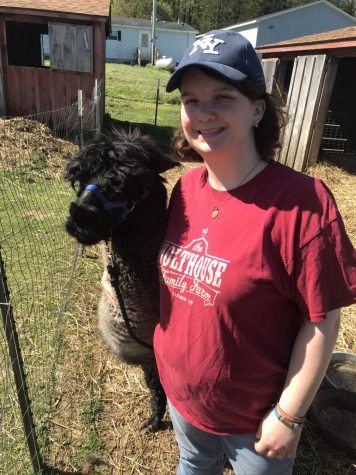DART webinar prepares students for social justice career
Allegheny’s Career Education section of The Gateway scheduled a webinar for interested students with the nonprofit, grassroots, congregation-based community organization DART, or the Direct Action and Research Training Center.
The webinar was led by Hannah Wittner, a member of DART staff, who talked students through what DART does as a faith based organization based around the United States in communities and towns with severe victims of injustice. DART helps the people in the communities to work together with their leaders, but do not do anything in the communities without the help of the people.
“DART is an organization, not an advocacy group,” Wittner said. “We train leaders in their communities. We don’t speak for anyone.”
The webinar went through the different levels and organizations of DART and told real life stories of people who work for the program and people who have been helped by the program.
The levels include PACT in Florida, PEACE in two different areas in Florida, including Palm Beach, Justice Matters in Kansas, Justice Knox in Tennessee and BUILD in Kentucky.
Wittner gave a few examples of stories of people helped by DART, more specifically BUILD in Kentucky when it came to drug treatment in jails. Treatments were in place for men who had been arrested for drug possession, but none for women who had been arrested.
In Lexington, Kentucky, one local woman named Vanita gave her testimony about how treatment saved her life.
“I found a treatment center, and it straightened me out and saved my life,” she said.
But then Vanita spoke about her daughter, who was arrested on drug charges similar to her mother, but who did not receive treatment while in jail and died because of it.
“When she got out of jail she went straight back to drugs. She didn’t know any better, because there was no treatment there,” Vanita said.
After many discussions with the mayor of Lexington trying to get her to work with them, and hosting what was called a Nehemiah Action Assembly in which the mayor attended and promised to commit to the program and get funds for it, the plan was set in motion. Eventually, treatment programs for women were set up in the jails for women in need of help.
The webinar also gave some personal stories from employees of the DART programs. Andy Lee who is a part of BOLD Justice in Florida, one of the 10 organizations there, gave his testimony of how he decided to work for DART.
“I wanted to be a professor at first, but I decided I didn’t want to study problems, I wanted to be a part of the solutions to the problems,” Lee said. “Now I can go to sleep every night, and I know the community is a better place because I went to work today.”
DART is an organization, not an advocacy group
— Hannah Wittner, Direct Action and Research Training Center
Overall, DART focuses on helping communities with large problems like Latino kids being suspended for small things like being late to class, and people not being treated in hospitals because they are without healthcare, and places where African Americans motorists were pulled over for small reasons. While it engages in charitable works, the main focus of DART is providing justice.
“As Frederick Douglass would put it, ‘power concedes nothing without demand’, ” Wittner said. “There are two types of power in the communities that we deal with, the power of money, and the power of people who want things to change.”
The DART webinar encouraged students who felt the calling to join their organization to apply for the upcoming year, or to wait until 2020 if they felt it might be something they would want to do at a later date, and while a good section of the webinar was focused on that, there was also a good section on justice and helping people.
As Pastor Richard Gaines said during the Lexington Nehemiah Action Assembly, “doing justice means doing the right thing.”

Sara Holthouse is a senior from Panama, NY. This is her third year/final semester on staff, where she has previously served as news editor for the past...








